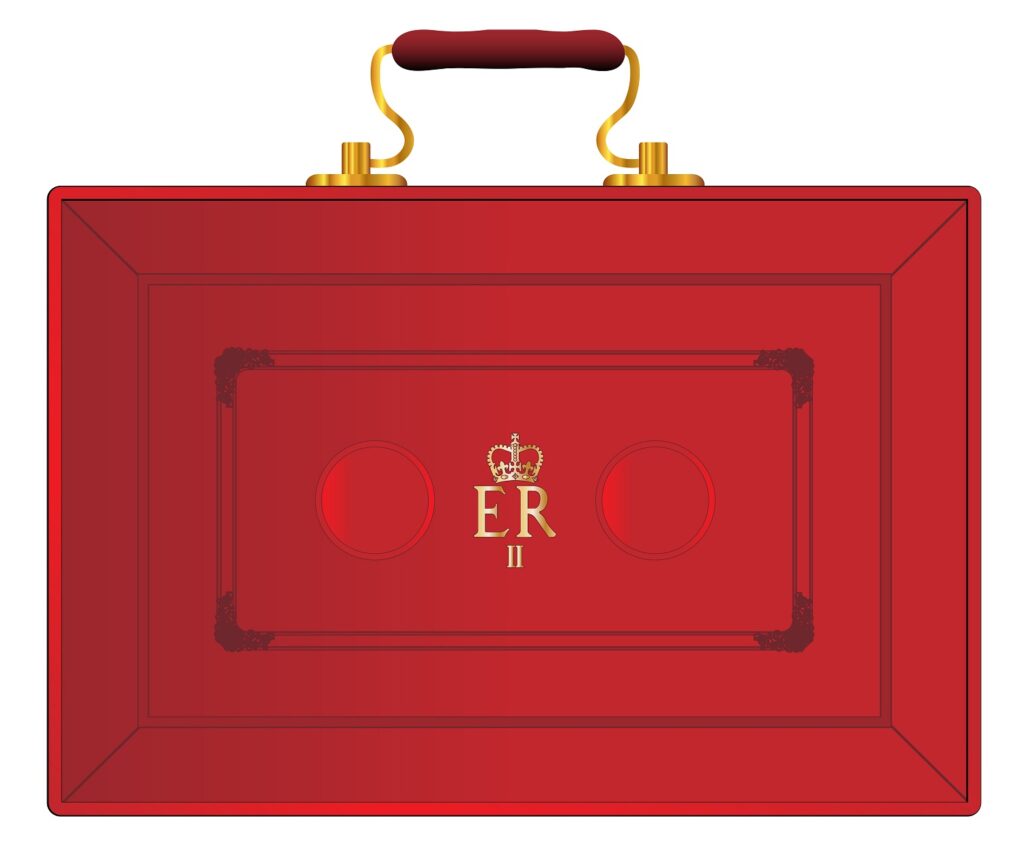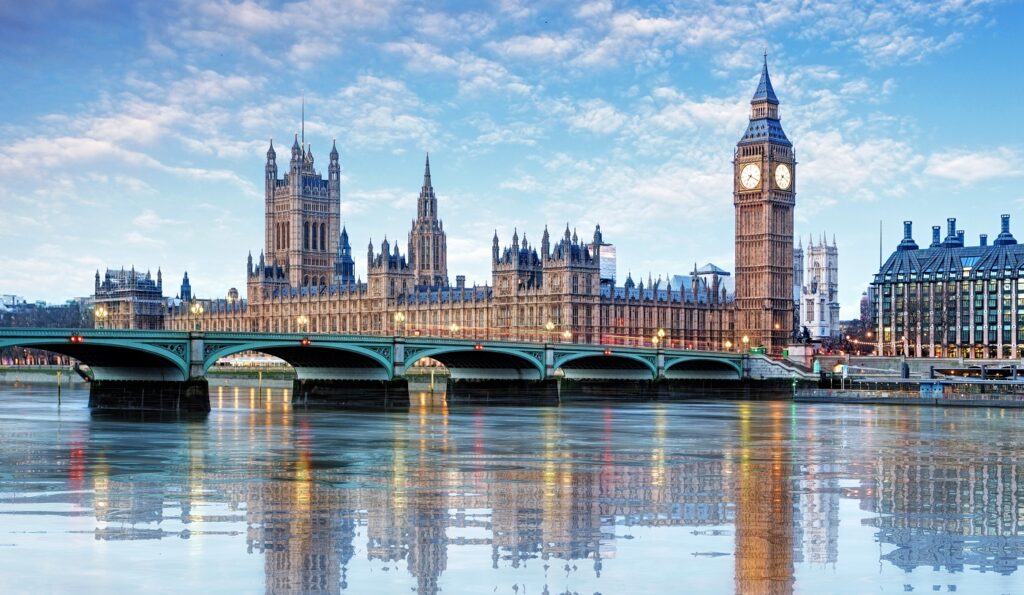The country has spoken and we have chosen Brexit and five years of Conservative government under Boris Johnson. We accountants are now starting to look forward to the next Budget although, at the time of writing, the date hasn’t been published. Oh, and we all need to file our 2019 tax returns before 31 January 2020. Hopefully you’ve got yours out of the way already!
What is the Budget?
The Budget is a statement made to the House of Commons by the Chancellor of the Exchequer on the nation’s finances and the Government’s proposals for changes to taxation. The Budget also includes forecasts for the economy by the Office for Budget Responsibility (OBR).
It seems that the word ‘budget’ originated from an old French word ‘bougette’ meaning little bag. Historically, the statement on financial policy was brought to the House of Commons in a leather bag. The modern equivalent is the familiar red despatch box.
The distinctive red Budget box, which Chancellors use to carry their speech from 11 Downing Street to the House of Commons, was in use for over one hundred consecutive years. The original wooden box was hand-crafted for William Ewart Gladstone around 1860. It was lined with black satin and covered with scarlet leather.
Lord Callaghan was the first Chancellor to break with tradition, in 1965, when he used a new box. In July 1997, Gordon Brown became the second Chancellor to adopt a new box for the Budget. George Osborne delivered the Budget in the original Gladstone box for his first Budget in 2010 but used a new box the year after.

You may have heard of ‘despatch box drinks’. I’ve certainly seen reference to Chancellors over the years enjoying their favorite tipple, sometimes referred to in their announcement about duties on beer, wine or spirits. By tradition, the Chancellor, unlike Ministers at the despatch box at any other time of the year, may drink alcohol during the Budget Speech if he wishes!
Former Chancellor, George Osborne, chose to drink mineral water. Other Chancellors have chosen mineral water (Gordon Brown and Alastair Darling), whisky (Kenneth Clarke), spritzer (Nigel Lawson), gin and tonic (Geoffrey Howe), brandy and water (Benjamin Disraeli) and sherry and beaten egg (William Ewart Gladstone). I shall be looking out to see what The Rt Hon Sajid Javid drinks when delivering his first Budget speech!
As background, before becoming an MP, Sajid Javid worked in business and finance, becoming a vice president of Chase Manhattan Bank, then moving to Deutsche Bank, leaving his role of senior managing director to give something back through politics.
The Budget and the Finance Bill are annual events, in part because income tax and corporation tax are annual taxes which have to be renewed by legislation each year. By contrast, most UK taxes, including all indirect taxes, petroleum revenue tax and taxes on capital, are ‘permanent’.
The longest continuous Budget speech was by William Gladstone on 18 April 1853, lasting 4 hours and 45 minutes. Benjamin Disraeli’s speech in 1852 lasted 5 hours but included a break. However, Benjamin Disraeli’s 1867 Budget speech lasted only 45 minutes.
With 12, William Ewart Gladstone holds the record for delivering more Budget speeches than any other Chancellor of the Exchequer.
What happens in Parliament?
The Chancellor of the Exchequer delivers his Budget statement to Members of Parliament in the House of Commons.
Some measures, such as any changes to the rates of duty on alcohol and tobacco, come into effect on Budget day, or soon after.
The power to make these changes on an interim basis, before the Finance Bill is passed, comes from the House of Commons approving a motion for the provisional collection of these taxes. After the Chancellor finishes his speech but before the Leader of the Opposition responds, the Chairman of Ways and Means puts a single motion to the Commons asking for agreement to these changes.
This is called the ‘Provisional Collection of Taxes’ and is by convention agreed to by the House, meaning that the changes can come into effect at 6pm on Budget day.

Traditionally, the Leader of the Opposition, rather than the Shadow Chancellor, replies to the Budget Speech. We shall see who that might be!
The Budget is usually followed by four days of debate on the Budget Resolutions. These are the tax measures announced in the Budget. Each day of debate covers a different policy area such as health, education and defence. The Shadow Chancellor makes his response the day after the Budget statement during the Budget debates.
Budget Resolutions can come into effect immediately if the House of Commons agrees to them at the end of the four days of debate but they require the Finance Bill to give them permanent legal effect.
The Finance Bill
A new Finance Bill is presented to Parliament each year. It enacts the proposals for taxation made by the Chancellor of the Exchequer in his Budget statement and brings them into law.
Once the House of Commons has agreed the Budget Resolutions, the Finance Bill starts its passage through Parliament in the same way as any other bill.

The House of Lords has a limited role in respect of Finance Bills. The House of Commons has the sole right to initiate and amend bills whose main purpose is to levy taxes or authorise expenditure.
Look out for my analysis of the Budget, and how it might affect you, later in the year.
If you have any queries or would like more information, you can contact me on 01473 833411 or [email protected].
This article is designed for the information of readers. Whilst every effort is made to ensure accuracy, information contained in this article may not be comprehensive and recipients should not act upon it without seeking professional advice. “MHA Larking Gowen” is the trading name of Larking Gowen LLP, which is a limited liability partnership registered in England and Wales (LLP number OC419486). Where we use the word partner it refers to a member of Larking Gowen LLP. © MHA Larking Gowen.


